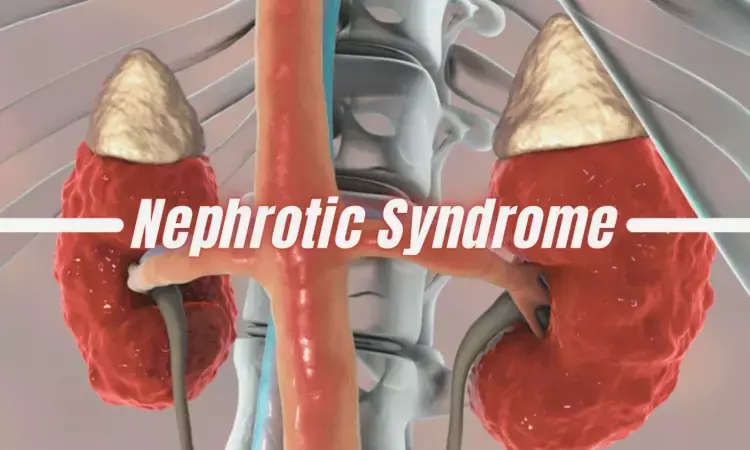- Home
- Medical news & Guidelines
- Anesthesiology
- Cardiology and CTVS
- Critical Care
- Dentistry
- Dermatology
- Diabetes and Endocrinology
- ENT
- Gastroenterology
- Medicine
- Nephrology
- Neurology
- Obstretics-Gynaecology
- Oncology
- Ophthalmology
- Orthopaedics
- Pediatrics-Neonatology
- Psychiatry
- Pulmonology
- Radiology
- Surgery
- Urology
- Laboratory Medicine
- Diet
- Nursing
- Paramedical
- Physiotherapy
- Health news
- Fact Check
- Bone Health Fact Check
- Brain Health Fact Check
- Cancer Related Fact Check
- Child Care Fact Check
- Dental and oral health fact check
- Diabetes and metabolic health fact check
- Diet and Nutrition Fact Check
- Eye and ENT Care Fact Check
- Fitness fact check
- Gut health fact check
- Heart health fact check
- Kidney health fact check
- Medical education fact check
- Men's health fact check
- Respiratory fact check
- Skin and hair care fact check
- Vaccine and Immunization fact check
- Women's health fact check
- AYUSH
- State News
- Andaman and Nicobar Islands
- Andhra Pradesh
- Arunachal Pradesh
- Assam
- Bihar
- Chandigarh
- Chattisgarh
- Dadra and Nagar Haveli
- Daman and Diu
- Delhi
- Goa
- Gujarat
- Haryana
- Himachal Pradesh
- Jammu & Kashmir
- Jharkhand
- Karnataka
- Kerala
- Ladakh
- Lakshadweep
- Madhya Pradesh
- Maharashtra
- Manipur
- Meghalaya
- Mizoram
- Nagaland
- Odisha
- Puducherry
- Punjab
- Rajasthan
- Sikkim
- Tamil Nadu
- Telangana
- Tripura
- Uttar Pradesh
- Uttrakhand
- West Bengal
- Medical Education
- Industry
Lenvatinib Linked to Nephrotic Syndrome in VHL Syndrome: Case Highlights Rare Kidney Complication

China: A recently published case report in BMC Nephrology by Dr. Yuehong Li and colleagues from the Department of Nephrology, Beijing Tsinghua Changgung Hospital, sheds light on a rare but serious complication associated with the cancer drug lenvatinib (LEN). The report presents a case of nephrotic syndrome triggered by LEN therapy in a patient with von Hippel-Lindau (VHL) syndrome, underscoring the need for close renal monitoring in individuals undergoing tyrosine kinase inhibitor (TKI) treatment.
VHL syndrome is a rare inherited disorder marked by the development of tumors in multiple organs. TKIs like lenvatinib are increasingly used for managing VHL-associated tumors, including pancreatic neuroendocrine tumors (pNET). However, LEN is known to carry a risk of renal side effects, most notably proteinuria.
The patient in the report, a 50-year-old Chinese man with genetically confirmed VHL syndrome, developed swelling in the lower limbs and foamy urine—classic symptoms of nephrotic syndrome—two years after beginning LEN therapy for pNET. Laboratory investigations revealed massive proteinuria, low serum albumin, and elevated cholesterol levels. Renal biopsy results showed thrombotic microangiopathy (TMA) and focal segmental glomerulosclerosis (FSGS)-like lesions, both indicative of severe kidney damage.
Given the patient’s complex medical history, including hypertension, diabetes, hypothyroidism, and a prior stroke, other causes of nephrotic syndrome were considered and ruled out. The kidney injury was ultimately attributed to LEN, which was promptly discontinued following multidisciplinary consultation.
Following cessation of LEN and initiation of supportive care—including blood pressure control, diabetes management, thyroid correction, and infection monitoring—the patient experienced a gradual decrease in proteinuria, reaching 0.66 g/day at the six-month follow-up. His kidney function remained stable, and imaging showed a slight reduction in the pancreatic lesion.
The authors emphasized that LEN-induced nephrotoxicity likely results from its inhibition of VEGFR and PDGFR, disrupting endothelial function and glomerular integrity. While proteinuria is a well-known side effect of VEGF inhibitors, this is reportedly the first case of LEN-induced TMA and FSGS-like kidney injury in a VHL syndrome patient.
The case contributes to a growing body of evidence that highlights the renal risks of TKIs, particularly when used long-term or at higher doses. Kidney biopsies in similar reports have frequently shown microangiopathic damage or podocyte injury. The report reinforces that early identification and discontinuation of the offending agent can lead to partial or complete remission of symptoms.
Given the expanding use of LEN in oncology, the authors stress the importance of routine urinalysis and early renal biopsy when abnormalities arise. They also note the potential of alternative targeted therapies like belzutifan, which may offer effective tumor control with a lower risk of renal toxicity.
"The case highlights a critical, albeit rare, side effect of lenvatinib in the treatment of VHL syndrome, pointing to the necessity of individualized treatment strategies, vigilant monitoring, and timely intervention to minimize long-term complications," the authors concluded.
Reference:
Zhang, S., Li, Y. & Wen, W. Case report: Nephrotic syndrome induced by Lenvatinib treatment in a patient with von Hippel-Lindau syndrome. BMC Nephrol 26, 370 (2025). https://doi.org/10.1186/s12882-025-04303-z
Dr Kamal Kant Kohli-MBBS, DTCD- a chest specialist with more than 30 years of practice and a flair for writing clinical articles, Dr Kamal Kant Kohli joined Medical Dialogues as a Chief Editor of Medical News. Besides writing articles, as an editor, he proofreads and verifies all the medical content published on Medical Dialogues including those coming from journals, studies,medical conferences,guidelines etc. Email: drkohli@medicaldialogues.in. Contact no. 011-43720751


